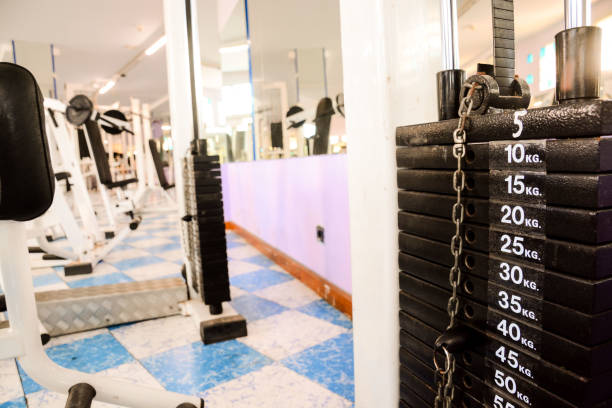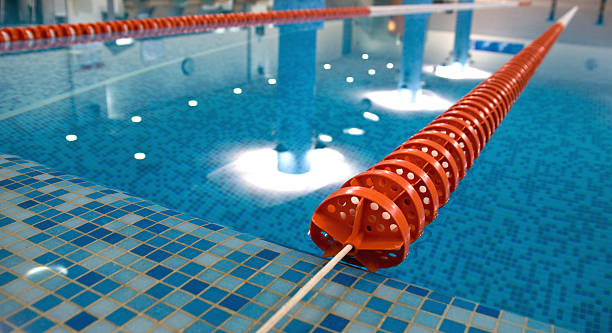
Internal Family Systems (IFS) for Swimmers/Athletes
Introduction
Hey there, fellow swimmers and athletes! Are you ready to dive deep into a revolutionary approach that can transform not only your performance but also your inner world? Get ready to explore the world of Internal Family Systems (IFS) and discover how it can unlock your true potential in sports and beyond.
Understanding IFS
So, what exactly is Internal Family Systems (IFS)? Picture your mind as a bustling family, with different parts playing various roles. You’ve got your inner coach, the ambitious competitor, the fearful worrier, and many more. IFS is all about understanding and harmonizing these internal dynamics. At the heart of IFS are three core components: the Self, the Parts, and the System. The Self is your authentic, compassionate core—the wise leader of your inner family. Parts are the diverse aspects of your personality, each with its own thoughts, emotions, and motivations. The System is the interconnected network of these parts, often operating in harmony or conflict.
Applying IFS to Swimmers/Athletes
Now, let’s dive into the exciting part—how swimmers and athletes can harness the power of IFS to reach new heights. Whether you’re training for a competition or facing challenges in your sports career, IFS offers a unique toolkit for self-discovery and growth.
Benefits of IFS for Swimmers/Athletes
1. Enhanced Mental Resilience
In the world of sports, mental resilience is key to overcoming setbacks and pushing through barriers. With IFS, you’ll learn to navigate your inner landscape with grace and resilience, turning obstacles into opportunities for growth.
2. Improved Focus and Concentration
Ever find your mind wandering during training or competition? IFS helps you cultivate laser-sharp focus by quieting distracting inner chatter and honing in on the task at hand.
3. Balanced Emotional Regulation
Sports can evoke a rollercoaster of emotions, from the thrill of victory to the agony of defeat. By nurturing a balanced relationship with your inner emotions, IFS equips you to ride the waves of competition with greater ease and composure.
4. Heightened Self-Awareness
Success in sports begins with self-awareness. With IFS, you’ll gain deep insights into your strengths, weaknesses, and underlying motivations, empowering you to make informed decisions both on and off the field.
5. Enhanced Team Dynamics
Athletics often involve teamwork and collaboration. By understanding and empathizing with the diverse parts of your teammates’ inner worlds, IFS fosters a culture of trust, communication, and mutual support within your sports community.
Managing Inner Conflicts
In the heat of competition, inner conflicts can arise, sabotaging your performance and dampening your spirits. With IFS, you’ll learn powerful techniques for resolving conflicts, finding common ground among your inner parts, and restoring harmony within.
Enhancing Performance
Ready to take your performance to the next level? IFS offers a treasure trove of tools and practices—from visualization exercises to mindfulness techniques—that can supercharge your training regimen and elevate your game.
Overcoming Mental Blocks
We’ve all faced those pesky mental blocks that seem to stand between us and our goals. Whether it’s fear of failure or self-doubt creeping in, IFS provides a roadmap for dismantling these barriers and unleashing your full potential.
Cultivating Self-Compassion
In the high-stakes world of sports, self-compassion is often overlooked but oh-so-crucial. Through the lens of IFS, you’ll learn to treat yourself with the same kindness and understanding you would offer a dear friend, fostering a deep sense of self-compassion and acceptance.
Coping with Pressure
Pressure is par for the course in sports, but it doesn’t have to weigh you down. With IFS, you’ll develop a robust toolkit for managing pressure, from soothing anxious parts to tapping into your inner reservoir of confidence and resilience.
Case Studies
Let’s take a look at some real-life examples of athletes who have embraced IFS and witnessed remarkable transformations in their sports performance and personal lives.
Case Study 1: Sarah’s Journey to Self-Discovery
Sarah, a competitive swimmer, struggled with performance anxiety and self-doubt. Through IFS, she learned to befriend her inner critic, cultivate self-compassion, and tap into her innate resilience. With newfound confidence and clarity, Sarah not only excelled in her swimming career but also experienced profound personal growth.
Case Study 2: John’s Path to Peak Performance
John, a professional athlete, grappled with perfectionism and fear of failure. With the guidance of an IFS therapist, he embarked on a journey of self-exploration, uncovering hidden parts of himself and integrating them into his sense of wholeness. Freed from the shackles of perfectionism, John embraced his imperfections and unlocked a newfound sense of joy and fulfillment in his athletic pursuits.
Conclusion
In conclusion, Internal Family Systems (IFS) offers a groundbreaking approach to personal development and sports performance. By understanding and harmonizing the diverse parts of your inner world, you can cultivate resilience, enhance focus, and unlock your full potential as a swimmer or athlete. So dive in, explore your inner depths, and unleash the champion within!
FAQs
Q1: Is IFS suitable for athletes of all levels?
Absolutely! Whether you’re a beginner or a seasoned pro, IFS can offer valuable insights and tools for personal growth and sports performance.
Q2: Can I practice IFS on my own, or do I need a therapist?
While working with an IFS-trained therapist can offer deeper insights and support, many athletes find value in practicing IFS techniques on their own, through self-reflection, journaling, and guided exercises.
Q3: How long does it take to see results with IFS?
Results may vary depending on individual circumstances, but many athletes report experiencing noticeable improvements in their performance and well-being within a few weeks or months of practicing IFS.


